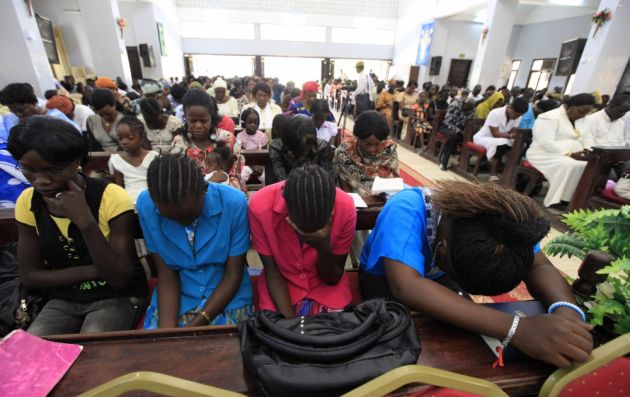Sudan could face return so Islamic Sharia law, says US commission

Sudan could face a return to Sharia law as civil war continues to rage in the north east African nation for almost 10 months says the U.S. Commission on International Religious Freedom.
The insight is contained in the report title: Freedom of Religion or Belief in the Sahel Region of Africa.
According to Encyclopaedia Britannica Sharia is the fundamental religious concept of Islam—namely, its law.
The report says, "Freedom of religion or belief in the Sahel region of Africa has experienced serious regression in recent years due to the activities of violent extremist groups, the fragility of governments, the presence of the armed forces in politics, and ethno-religious clashes in isolated areas."
The Sahel is semiarid region of western and north-central Africa extending from Senegal eastward to Sudan which is one of Africa's biggest countries.
"Violent insurgent groups such as the Islamic State Sahel Province (IS Sahel) and Katiba Macina perpetrate serious violations against religious minorities, often in a context of weak state security," says Britannica.
In Sudan, the Sudanese Armed Forces under the country's transitional leadership of General Abdel Fattah al-Burhan has recruited thousands who worked as intelligence operatives of former pro-Islamic President Omar al-Bashir, the commission said.
It has raised concerns among Christians that al-Burhan has hopes of establishing Sharia law.
The United Nations says that the war between rival militaries in Sudan, which has been raging for over seven months has further intensified in recent weeks, particularly in the volatile Darfur region.
Sudan's military government under the leadership of Omar al-Bashir (1989-2019), one of the longest lasting on the African continent, severely repressed traditional religious communities who themselves often intermixed with smaller ethnic groups within Darfur and the "Two Areas" of South Kordofan and Blue Nile.
In 2017, Sudan was the first country in Africa to request assistance in security management from Russia's Wagner Group.
The U.S. commission's report said that the Wagner Group would serve as a foreign policy tool for the Russian government in the region in assisting Sudan's and other governments in these capacities.
FALL OF BASHIR REGIME
"After the fall of the Bashir government (April 2019), the transitional government granted Muslim and Christian groups some important freedoms, earning praise and support from the U.S. government.
However, the outbreak of new conflict in April 2023 within the state security apparatus has severely diminished any possibility of safe, open religious practice in Sudan says the U.S. commission.
An estimated 5.4 million people have been displaced, most of them internally, due to the current conflict in Sudan. More than 1 million have travelled to bordering countries in search of refuge.
With the fall of the Bashir regime, the interim government produced a constitutional declaration that included several provisions protecting the right to freedom of religion or belief and worship "in accordance with the requirements of the law and public order."
Unlike the former constitution, it made no reference to Sharia as a source of law, although the clause restricting the death penalty permits its imposition in the form of hudud (religiously prescribed) punishments for certain crimes.
The transitional government also took positive steps to repeal repressive laws and regulations that restricted religious freedom, including the country's public order and apostasy laws.
Most of Sudan's estimated 49 million people are Sunni Muslims, but a small minority are Christians.